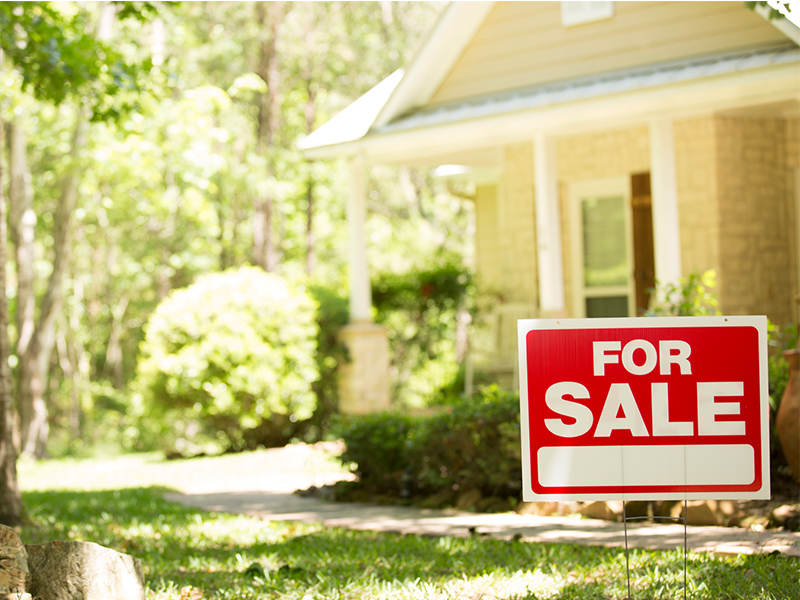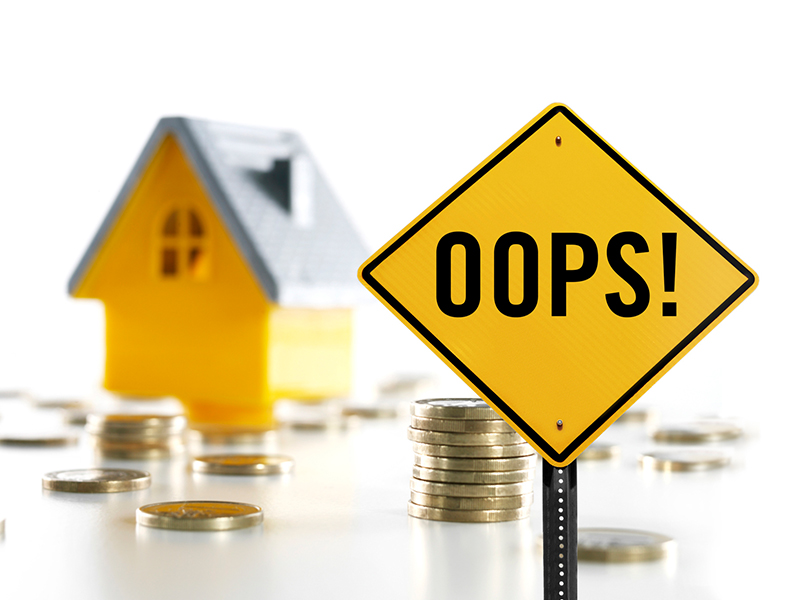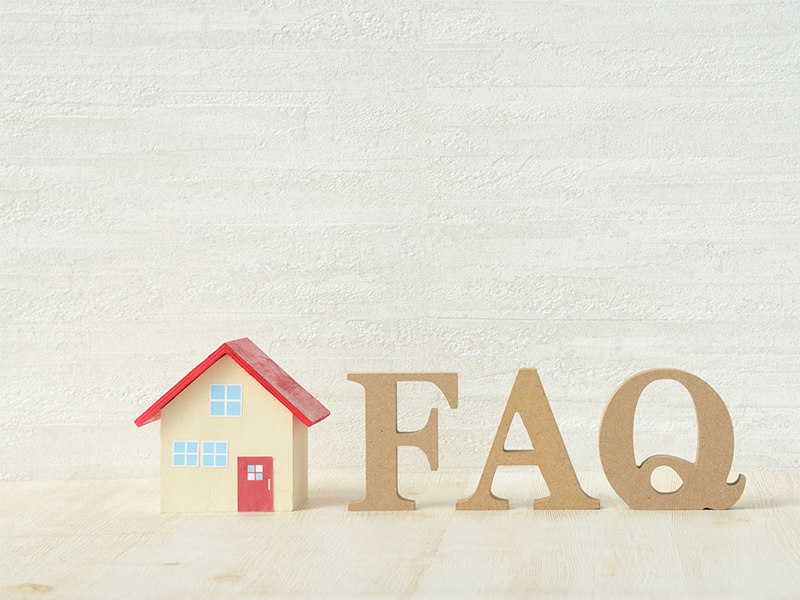
Coronado, CA is known for its luxurious and exclusive properties, with strong demand driven by its picturesque coastal location, charming small-town atmosphere, and proximity to San Diego. The housing stock features single-family homes, beachfront properties, townhomes, and upscale condos, attracting primary residents and vacation homebuyers.
Selling a home can be exciting and daunting, especially in a competitive market like Coronado. You’ll need meticulous planning and attention to detail to ensure your property stands out and sells quickly. For starters, partnering with a trusted local agent who has in-depth knowledge of the Coronado real estate market can make all the difference in selling your home quickly and easily. Additionally, knowing what mistakes to avoid is crucial to ensuring a smooth and successful sale.
Are you ready to sell your house?
In this article, we’ll highlight the 12 common home-selling mistakes that you should be aware of and provide tips on how to avoid them. We’ve also prepared some frequently asked questions to address any additional concerns you might have and help you navigate the selling process with confidence.
Table of Contents:
12 MISTAKES TO AVOID WHEN SELLING A HOUSE IN CORONADO, CA

-
Overpricing the home
-
Neglecting curb appeal
-
Not staging your home
-
Inadequate marketing
-
Ignoring necessary repairs
-
Using low-quality photos
- Limiting home showings
-
Providing incomplete and inaccurate information
-
Getting emotional
-
Not depersonalizing
-
Refusing to negotiate
-
Not working with a real estate agent
Overpriced homes take longer to sell. The extended time may lead potential buyers to wonder if there’s something wrong with the house. Additionally, buyers filtering by price may not find an overpriced property in their search results. Eventually, properties that have remained on the market sell for less than their market value due to price reductions.
How to avoid overpricing your home. Working with a local real estate agent who can perform a comparative market analysis (CMA) is the most effective way to determine a reasonable price for your home.
First impressions matter. This is especially crucial in Coronado’s upscale market, where a beautifully presented home can be a major selling point. Curb appeal shapes the initial perception of your property. If not addressed, it can lead buyers to drive past without stopping or form a negative perception before they even enter the home. Overgrown lawns, peeling paint, and a cluttered front yard can reduce interest in a house and affect its saleability and perceived value
How to avoid neglecting curb appeal. Rake the leaves, trim the hedges, and paint your front door and shutters. Add plants and update your landscape to boost your home’s curb appeal.
Neglecting to stage your home can be challenging for buyers to imagine themselves living in the space. Additionally, homes without proper staging tend to receive fewer showings and linger on the market longer. Buyers want move-in-ready and well-maintained properties. A home that looks dull and cluttered, with no visible signs of putting its best foot forward, may turn off serious buyers and decrease its value.
How to avoid selling an unstaged home. Invest in professional staging, which involves arranging furniture, decor, and accessories to enhance a property’s appeal. It aims to showcase the home’s best features to attract the kind of buyers you’re targeting.
Poor marketing strategies can fail to reach your target audience, leading to fewer showings and lower offers. In today’s digital age, relying solely on traditional methods like yard signs is no longer enough. To attract potential buyers and generate significant interest in your home, you’ll need a robust and modern marketing strategy that effectively engages a broad audience.
How to avoid inadequate marketing. Collaborate with a real estate agent who has a solid marketing strategy, such as virtual tours, professional photography, and targeted web advertising. Promote your home using social media and real estate websites.
If buyers see problems that need to be addressed, they may question other, less obvious issues with the property. They may be put off by repair costs and reduce the price they’re willing to pay. Others may decide not to pursue the property.
Making the necessary repairs shows that you’ve maintained the home and it’s fit for occupancy. Small fixes, such as repairing leaky faucets, loose door knobs, and wall cracks, can greatly impact a buyer’s perception. Besides, minor repairs can boost your property’s charm and value.
How to avoid neglecting repair work. Hire a licensed home inspector to identify hidden issues so you can complete all repairs before listing your home. This will help you get the best price for your property and reduce the number of potential buyers who back out due to unforeseen problems.
For buyers to be interested in your property, you need to have high-quality listing photos. Poorly lit or blurry pictures can make your home look less appealing and fail to highlight its best features. You may lose buyers to other listings with better visuals.
How to avoid using low-quality photos. Hire a professional real estate photographer to capture high-quality photos of your property. Professionals can present your home in its best light and from the most flattering angles, resulting in a more compelling and attractive online listing that stands out to potential buyers.
When buyers can’t schedule a viewing, they may move on to other, more readily accessible properties. Limited showings reduce exposure and can lead to fewer offers, affecting the sale price.
Having an open house and giving more people the chance to see it – including accommodating last-minute showings and being flexible with your schedule – will expand your buyer pool.
How to avoid limited showings. Create a schedule that works for your real estate agent and potential buyers. Provide flexible times to maximize showings, including evenings and weekends.

Incomplete or misleading information about your home may cause buyers to be wary, resulting in fewer offers and a longer time on the market. Buyers are more likely to be attracted by listings that accurately describe the property’s features. They’re more confident about making an offer when they have precise information about the home’s size, layout, condition, and recent renovations or issues.
How to avoid providing limited information. Include all property details in your listing, including square footage, features, and the date of any recent updates or renovations. It helps build trust and can lead to a smoother sale when you provide comprehensive information.
Selling a home, especially your first one, is often an emotional experience. You will remember the time and effort it took to find the perfect place, saving for a down payment, and furnishing it exactly the way you wanted. You will recall the milestones and significant moments that occurred in the house. Therefore, sellers find it hard to let go.
How to avoid getting emotional. Approach the sale with a clear, objective mindset. Shift your perspective from being a homeowner to thinking like a businessperson or a salesperson. Consider the property’s financial value rather than its sentimental value and proceed as if it were a financial transaction. Ask your Realtor to keep you on an even keel.
Depersonalizing your home is more than just decluttering – it’s about creating a neutral space where potential buyers can envision themselves living in your house. Remove souvenirs, photographs, and other memorabilia. If you’re unsure about a particular item or piece of decor, it’s best to err on the side of caution and remove it. Keep the look simple, clean, and fresh to appeal to various tastes.
How to avoid imposing your personal style. A less-is-more approach also applies to personal design preferences. You may love bold wallpaper, bright paint colors, and trendy furniture, but these elements can distract buyers and prevent them from appreciating your home’s features. Buyers are more likely to be drawn to homes with neutral colors, basic furnishings, and subtle designs that emphasize the space over the current owner’s style.
It’s common to receive offers that don’t match your initial expectations when selling your house. While you may believe your asking price is fair and acceptable, negotiation is often necessary to establish a mutually beneficial deal. Besides, a sale is more likely to succeed if both sides benefit from it.
How to avoid being inflexible. If the offer is lower than expected, consider negotiating instead of rejecting it outright. Think of strategies to make the deal more attractive to the buyer while still achieving your financial goals. For instance, consider covering closing costs if you want to increase the sale price. You may also agree to pay for minor repairs found during the home inspection.
It’s also important to remember that negotiations aren’t only about the price. Closing dates, contingencies, and what goes with the house are all negotiable.
Many sellers believe avoiding agent fees can save them money by placing a “For Sale by Owner” (FSBO) sign on their lawn. However, hiring a real estate agent can be a wise decision. A skilled agent will help you set a fair and competitive price for your home, increasing the chances of selling it quickly and profitably.
Having an agent handle interactions with potential buyers reduces the selling process’s emotional strain. They filter out unqualified prospects, ensuring that only serious buyers view your property, saving you time and stress.
A real estate agent also brings extensive negotiation skills to the table. They know how to secure better deals than you could get alone and handle concerns so minor issues will be completed on time.
Additionally, real estate transactions are seamless with professional guidance. An agent handles documentation accurately, limiting the possibility of delays or legal difficulties. Hiring a real estate agent is more than simply paying for their services; it’s an investment in a smoother, more profitable home-selling process.
How to avoid selling a house without a real estate agent. To choose the right real estate agent, consider their experience, local market knowledge, and client reviews. Ensure they have strong communication skills and a good track record in your area. Interview multiple agents, ask about their strategy, and trust your instincts to find someone who understands your needs and goals.
FREQUENTLY ASKED QUESTIONS (FAQs)

Q: How long does it usually take to sell a house?
A: The timeline for selling a home can vary widely based on several factors, including market conditions, location, pricing, and the property’s overall condition. On average, finding a buyer and finalizing the sale can take several weeks to months. However, some homes may sell faster in a hot market or with the right strategy, while others might take longer if conditions are less favorable.
Q: Can I sell my house while still living there?
A: Certainly! However, you must carefully plan and organize your move. Ensure the house is always clean, decluttered, and ready for showings. Coordinate with your real estate agent to set up showings and open houses in advance to avoid disruptions to your schedule.
Q: Can I negotiate my agent’s commission rate?
A: You can negotiate the commission rate with your real estate agent, but it’s essential to consider their level of service, expertise, and marketing strategies when doing so. An experienced agent can greatly influence the sale price and overall success of the transaction. When discussing commission rates, focus on the value and results that the agent provides, as these factors can make a significant difference to your selling experience.
SELL YOUR CORONADO, CA HOME WITH SEAN CADDELL & ASSOCIATES

Selling a home in Coronado, CA requires careful consideration and a strategic approach. If you avoid the common mistakes listed above, you’ll have a better chance of selling your home quickly and smoothly. Attention to detail is crucial, from setting the price to improving curb appeal, marketing your property, and negotiating. Most importantly, partner with a knowledgeable local real estate agent to navigate the Coronado market’s complexities as smoothly as possible.
Sean Caddell is an accomplished global real estate adviser with expertise in multiple areas, such as equestrian properties, new developments, and San Diego coastal luxury homes. As a reputable and sought-after specialist with over 20 years of experience, Sean provides valuable insights and guidance to clients looking to buy or sell in Coronado and the surrounding communities.
Reach out to us, Sean Caddell & Associates, by calling 858.472.1074 or sending an email, to get started on your home selling journey.

